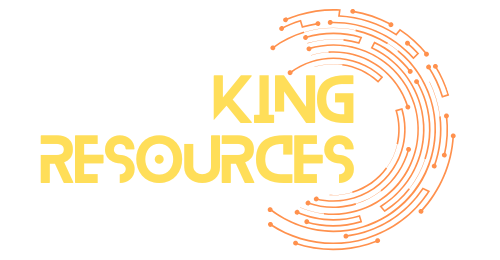In the great debate of buying a starter home versus renting, many find themselves at a crossroads that feels like choosing between pizza and tacos—both are delicious, but one might just give you a little more long-term satisfaction. Renting offers flexibility, like that beloved pair of sweatpants you can’t live without, while buying a home promises stability, like finally having a place to hang that questionable art piece your aunt gifted you.
As the housing market dances to its own quirky tune, potential homeowners and renters alike must weigh their options carefully. Is it time to invest in a cozy little nest, or is it wiser to keep the freedom of renting? With a sprinkle of humor and a dash of insight, let’s dive into the pros and cons of each choice, helping you find the perfect fit for your lifestyle and financial goals.
Table of Contents
ToggleOverview of Buying a Starter Home vs Renting
Buying a starter home offers long-term investment potential. Homeownership builds equity over time, leading to potential financial gain. Tax deductions related to mortgage interest provide savings opportunities, making ownership appealing. Buyers can customize their living space, creating a home that reflects their style.
Renting provides flexibility that suits many lifestyles. Renters can relocate easily, adapting to job changes or personal needs without the burden of selling a property. Monthly rental payments often include maintenance and utilities, simplifying budgeting. Consider the lack of long-term commitment, which allows renters to reassess their living situations regularly.
Financial readiness plays a crucial role in the decision process. A down payment typically ranges from 3% to 20% of the home price, impacting cash flow. Closing costs can add another 2% to 5% to the purchase. Conversely, renting requires less upfront investment, often limited to first month’s rent and a security deposit.
Lifestyle preferences also influence choices. Buyers often seek stability and community roots, while renters value spontaneity and freedom. Those focused on career advancement may prefer renting during transitional phases. Individual priorities dictate whether investing in a starter home or renting aligns better with overall goals.
Market conditions impact decision-making significantly. Rising home values may encourage buying, while fluctuating rental prices could deter it. Researching local market trends helps individuals understand the advantages of each option. Making informed choices ensures alignment with personal financial situations and long-term objectives.
Pros of Buying a Starter Home

Buying a starter home offers several advantages, including building equity and enjoying tax benefits.
Building Equity
Ownership creates a pathway for building equity, which refers to the value accumulated in a property over time. When paying a mortgage, a portion finances the home’s principal rather than just rent. As market values appreciate, equity increases, allowing homeowners to leverage this asset for future investments. Building equity also contributes to financial stability in retirement. It’s common for homeowners to access equity for major expenses or renovations, further enhancing the property’s value. Many find that over years, the equity amassed becomes a cornerstone of their net worth.
Tax Benefits
Homeownership provides significant tax benefits, making it an appealing financial choice. Mortgage interest payments become tax-deductible, reducing taxable income for many homeowners. Property tax deductions can also lead to substantial savings. Additionally, first-time homebuyers often qualify for incentives or credits at both state and federal levels, improving overall financial outcomes. Selling a primary residence may grant homeowners exemptions on capital gains taxes, further promoting long-term investments. Such tax advantages strengthen the appeal of purchasing a starter home for individuals looking to improve their financial future.
Cons of Buying a Starter Home
Buying a starter home involves challenges that can outweigh the perks. Factors like upfront costs and ongoing maintenance responsibilities contribute to this decision.
Upfront Costs
Down payments typically range from 3% to 20% of the home’s purchase price, depending on loan types. Closing costs can add another 2% to 5% of the purchase price, creating a significant initial financial burden. Buyers often need to budget for inspections and appraisals, which can add several thousand dollars to the total. Financial stress can arise if all home-buying expenses aren’t planned in advance. Long-term financial commitments can make homeowners feel trapped, especially in fluctuating markets, affecting their ability to relocate.
Maintenance Responsibilities
Homeownership means assuming all maintenance responsibilities that renters typically avoid. Major repairs like roof replacement, plumbing issues, or appliance malfunctions can disrupt budgets. Homeowners face ongoing costs for routine maintenance, which includes landscaping, HVAC systems, and seasonal property upkeep. Additionally, unexpected repairs can occur, leading to financial strain if not properly managed. Unlike renters, who can rely on landlords for assistance, homeowners must resolve issues independently, adding to their stress and time commitments.
Pros of Renting
Renting offers distinct advantages, particularly in terms of flexibility and financial commitment.
Flexibility and Mobility
People appreciate how renting allows for quick relocations without needing to sell a property. Job changes, personal circumstances, or lifestyle shifts often prompt moves. Conveniently, renters can choose lease terms that suit their plans, whether that’s a month-to-month agreement or a year-long lease. Discovering new neighborhoods or cities becomes easier, enabling individuals to explore living spaces that best fit their current needs. Additionally, renters avoid the lengthy process of navigating real estate transactions, making it simpler to adapt to changing life circumstances.
Lower Initial Investment
Renters face a lower upfront investment compared to buyers. Generally, security deposits replace large down payments, making entry into the rental market more manageable. Monthly rent typically includes maintenance and utilities, reducing unexpected costs for renters. Budgeting becomes streamlined as individuals only need to focus on rental payments without worrying about property taxes or homeowner’s insurance. These financial benefits enable renters to allocate funds to savings or other expenses, increasing their financial flexibility and freeing them from the burdens associated with homeownership.
Cons of Renting
Renting presents several drawbacks that potential renters should consider. While it offers flexibility, certain factors limit the overall benefits.
No Equity Build-Up
Renters do not build equity in a property. Monthly rent payments go to landlords instead of contributing to personal investment. In contrast, homeowners can appreciate property values over time. Lack of equity means renters miss out on long-term financial gains. As property values increase, homeowners benefit from appreciation. Renting can feel like throwing money away in the long run, with no return on investment. Individuals may find it challenging to save for a future home when continuously renting.
Potential for Rent Increases
Rent can increase annually, making budgeting difficult for renters. Landlords often raise rent to keep up with market rates or property taxes. Unexpected hikes can strain financial plans, causing renters to seek new housing sooner than anticipated. Changes in the rental market may create instability, leading to frequent relocations. Understanding local market trends helps navigate potential increases, but uncertainty remains. Renters need to prepare for potential price adjustments when renewing leases. Risk in budgeting arises when accounting for fluctuating rental costs.
Choosing between buying a starter home and renting is a significant decision that impacts both lifestyle and finances. Each option offers unique advantages that cater to different preferences and circumstances. Homeownership provides stability and the potential for long-term financial growth, while renting offers unmatched flexibility and lower upfront costs.
Ultimately, individuals should evaluate their personal goals, financial readiness, and market conditions. By understanding the pros and cons of each choice, they can make an informed decision that aligns with their current needs and future aspirations. Whether one opts for the roots of homeownership or the freedom of renting, the right choice is the one that best fits their lifestyle.









